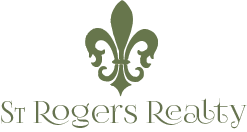One of the most common questions I hear when it comes to purchasing a rental property is, “How much should I offer”? This is somewhat of an open ended question given that there are quite a few variables and perspectives that come into play when evaluating a rental property. To name a few:
- Comparables* in the area
- Repairs needed
- Cash flow*
- Desired Return on Investment (ROI*)
- Exit strategy*
In this post, we will refer to two types of rental properties. Single Family House (one unit) and Multi-family properties (two or more units). A few simple ways to evaluate these are as follows:
Single Family House 70% Rule
- Determine the property’s After Repair Value (ARV) using comparables
- Get three different repair estimates to leave the property rent ready
- Take the ARV minus the estimated repairs and multiply that figure by 70%
- (ARV – Repair Estimates) x 70% = Offer Price
- Example: ($135,000 – $30,000) x 70% = $73,500
80x Rent Rule
- How much is it currently renting for?
- Multiply that amount by 80
- Rent x 80 = Offer Price
- Example: $950 x 80 = $76,000
1% Rule
- Estimated Rents / 1% = Purchase price + Urgent Repairs
- Example: House rents for $950; ($950 / .01 = $95,000)
- $95,000 = Purchase Price + Urgent Repairs
- Urgent Repairs = $20,000
- Purchase Price = $75,000
- Note: the higher the repairs, the lower the purchase price will be
Cash Flow
- Simply take your monthly rent and subtract your estimated monthly expenses (mortgage, tax, insurance, PMI and repairs)
- $950 (rent) – $750 (estimated monthly expenses) = $200 Free Cash Flow (FCF)
- To determine the return on your investment simply take the annual cash flow (FCF x 12) and divide it by the amount of cash out of pocket that you invested in the property (down payment, repairs, closing costs)
- ($200 x 12) / $20,000 (down payment plus repairs) = 12% return
Multi-family Property Cap Rate
- Cap Rate = Net Operating Income* / Purchase Price
- Example: $13,000 / $79,000 = 16.46% cap rate
- Note: The average cap rate is usually dependent on your local market but in reality, you can target any cap rate that aligns with your goals. In simpler terms, the cap rate is simply the return on operating income (before any required repairs) if you pay cash for the property.
Cash on Cash Return
- Annual Cash Flow* / Cash required to acquire the property = Cash on Cash Return
- Cash required to acquire the property: (this includes down payment, closing costs, repairs plus any other amount needed to leave the property rent ready).
- Example: ($665 monthly cash flow x 12) / $59,825 (down payment + closing costs + repairs) = 13.3% cash on cash return
Cash Flow per unit
- Determine the total monthly cash flow and divide by the number of units
- Example: $665 / 3 = $221 monthly cash flow per unit
The above-mentioned rules or ways of determining whether a deal will be a good investment are simply guidelines to confirm if the numbers make sense for you. At the end of the day, an 8% return on your investment might be great for someone and not acceptable for someone else. This will depend on what goals you have set for yourself and also your current position to invest. If you have quite a bit of cash, you may be able to acquire a property that is very distressed and be able to increase its value drastically by remodeling it completely. On the other hand, if you only have enough cash set aside to cover the down payment, you would probably want to consider a property that does not need many repairs but can have a positive cash flow after your mortgage and other expenses are paid. The percentage return may be less on properties that do not require many repairs but the process to acquire and rent the property will also be much simpler and quicker. At the end of the day, the idea is to have someone else pay for your investment while building equity and watching the value of your property increase over the years. I personally tend to look at most of the guidelines mentioned above for any particular property simply to reassure that I like the deal and am willing to move add that property to my portfolio.
I will focus on sharing my tools on evaluating properties via the website but please feel free to email/call/text me if you have a specific question(s) or would like some more detailed guidance.
With much appreciation, Rafael
*Comparables: Recently sold/rented properties in the area with a similar size and condition.*Cash Flow: The net cash received on a monthly basis after all expenses are paid. *ROI: Percentage of money returned based on the amount invested. *Exit Strategy: What do you plan to do with the property in the long run? (e.g. sell it, keep it in perpetuity, live in it, etc.)*Net Operating Income: Total Rent received – total expenses = net operating income
